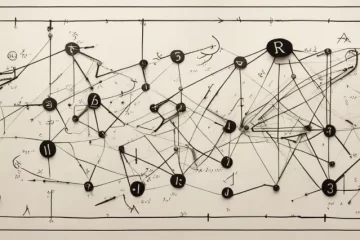The Power of Now: Igniting Psychological Healing Through Eckhart Tolle’s Profound Insights

In a world plagued by the incessant chatter of negative thoughts and past grievances, finding true inner peace and freedom seems like a distant dream. However, in his groundbreaking book, “The Power of Now,” renowned spiritual teacher Eckhart Tolle offers a profound guide to psychological healing that transcends conventional therapies. Penned with wisdom and enlightenment, Tolle’s timeless words urge us to let go of past burdens and embrace the transformative power of living in the present moment. In this article, we delve into the invaluable lessons of Tolle’s work, deciphering the essence of psychological healing and exploring how it can profoundly shift our perception of ourselves and the world around us. Are you ready to embark on a journey towards inner liberation? Then, prepare to unlock the profound healing potential within “The Power of Now.
What is Psychological Healing
Psychological healing refers to the process of overcoming emotional and mental challenges, such as trauma, grief, anxiety, depression, and other psychological conditions. It involves the restoration of mental health and well-being by addressing the underlying causes of distress and promoting personal growth and resilience. Psychological healing typically involves various therapeutic techniques and interventions, such as psychotherapy, counseling, medication management, self-help strategies, and support networks. The aim is to alleviate psychological symptoms, improve coping skills, enhance self-awareness and understanding, and foster a sense of empowerment and positive transformation. Ultimately, psychological healing enables individuals to lead fulfilling and meaningful lives despite adversity or past experiences.
Why is Psychological Healing Important to Us
Psychological healing is important to us for several reasons:
1. Mental well-being: Psychological healing helps individuals address and recover from psychological issues such as trauma, anxiety, depression, and stress. It allows people to find relief from emotional pain and achieve better mental health.
2. Overall health: Psychological healing has a strong connection to physical health. Unresolved psychological issues can contribute to the development or worsening of physical ailments. By addressing these issues, individuals can improve their overall health and well-being.
3. Relationships: Psychological healing helps people develop healthier relationships with themselves and others. It can assist in resolving conflicts, improving communication skills, and fostering empathy and understanding. Stronger emotional well-being positively impacts interpersonal connections.
4. Self-growth and personal development: Psychological healing enables individuals to gain self-awareness, understand their thoughts and behaviors, and challenge negative patterns. It promotes personal growth, helping people realize their full potential and build resilience.
5. Productivity and success: Unresolved psychological issues can impact one’s ability to focus, concentrate, and perform well in various areas of life, including work, education, and personal goals. Psychological healing can enhance productivity, creativity, and success by improving mental clarity and resilience.
6. Quality of life: Psychological healing allows individuals to cultivate a more meaningful and fulfilling life. It helps in finding purpose, setting and achieving goals, and enhancing overall life satisfaction.
7. Breaking generational patterns: Psychological healing can break negative patterns and cycles that may have been passed down through generations. By addressing unresolved traumas and emotional wounds, individuals can prevent the perpetuation of harmful behaviors and beliefs.
8. Empowerment and autonomy: Psychological healing empowers individuals to take control of their lives. It helps in developing coping strategies, problem-solving skills, and emotional resilience, enabling individuals to navigate life’s challenges more effectively.
Overall, psychological healing is crucial as it supports individuals in achieving better mental health, fostering healthy relationships, improving overall well-being, and leading more fulfilling lives.
Unlocking Psychological Healing from The Power Of Now

The Power Of Now Introduction
The Power of Now” by Eckhart Tolle is a spiritual guidebook that explores the importance of living in the present moment and adopting a state of mindfulness. Tolle argues that most humans are trapped in their thoughts and emotions, which prevents them from fully experiencing and appreciating the present moment. He explains how dwelling on the past or worrying about the future leads to suffering and dissatisfaction in life.
The book is divided into two parts. In the first part, Tolle introduces the concept of the “pain-body” – a collection of negative emotional patterns that reside within individuals and affect their perception of reality. He offers various techniques and practices to help readers break free from this pain-body and achieve a state of inner peace.
The second part of the book delves into the nature of consciousness and the ego. Tolle explains how identifying with the ego creates unnecessary suffering and how embracing awareness can lead to a more fulfilling existence. He discusses the interconnectedness of everything and emphasizes the power of acceptance, surrender, and detachment.
Overall, “The Power of Now” encourages readers to let go of the past, stop worrying about the future, and fully immerse themselves in the present moment. By doing so, Tolle believes that individuals can find true happiness and enlightenment.
Psychological Healing Methods
In “The Power of Now,” Eckhart Tolle explores various psychological healing methods that help individuals find inner peace and overcome personal suffering. Some of the key methods include:
1. Mindfulness: Tolle emphasizes the practice of mindfulness, which involves being fully present in the current moment and observing one’s thoughts and emotions without judgment. By cultivating present moment awareness, individuals can detach from negative mental patterns and find inner stillness.
2. Presence: Tolle encourages individuals to cultivate a sense of presence, which involves deepening one’s awareness of the underlying consciousness or “beingness” that exists beyond thoughts and emotions. By connecting with this deeper aspect of oneself, individuals can transcend their ego-based identity and experience a sense of peace and liberation.
3. Acceptance: The book emphasizes the importance of accepting the present moment as it is, regardless of circumstances. Tolle encourages readers to let go of resistance, judgment, and the need to control situations, allowing for a more peaceful and accepting stance towards life.
4. Surrender: Tolle suggests surrendering to the present moment and relinquishing the need for external validation or outcomes. By surrendering to what is, individuals release the ego’s need for control and find a deeper sense of peace and harmony within themselves and the world.
5. Stillness: Tolle underscores the significance of finding moments of stillness and calm amidst the chaos of daily life. Engaging in practices such as meditation, nature walks, or simply moments of deep breathing can help individuals access a state of inner stillness and reconnect with their true essence.
6. Letting go of the past and future: Tolle emphasizes that dwelling on the past or fixating on the future prevents individuals from fully experiencing the present moment. By letting go of past grievances and worries about the future, individuals can free themselves from unnecessary suffering and find inner peace.
These are just a few of the psychological healing methods mentioned in “The Power of Now.” Tolle’s teachings encourage readers to become more aware of their thoughts, emotions, and the present moment, ultimately leading to greater clarity, acceptance, and inner transformation.
The Power Of Now Quotes
The Power Of Now quotes as follows:
1. “Realize deeply that the present moment is all you ever have.”
2. “The pain that you create now is always some form of nonacceptance, some form of unconscious resistance to what is.”
3. “To be identified with your mind is to be trapped in time: the compulsion to live almost exclusively through memory and anticipation.”
4. “The more you are focused on time—past and future—the more you miss the Now, the most precious thing there is.”
5. “Being spiritual has nothing to do with what you believe and everything to do with your state of consciousness.”
6. “Life is the dancer and you are the dance.”
7. “The moment you realize you are not present, you are present.”
8. “The primary cause of unhappiness is never the situation, but your thoughts about it.”
9. “Wherever you are, be there totally.”
10. “Most people are so completely identified with the voice in the head—the incessant stream of involuntary and compulsive thinking—that what they perceive as the world is nothing more than a mind-created virtual reality.”

More Books About The Power Of Now by Eckhart Tolle
1. Self-Analysis” by Karen Horney
In this insightful book, Karen Horney explores the power of self-analysis and the transformative impact it can have on our lives. Just like “The Power of Now,” Horney encourages readers to delve into their inner selves and understand their thoughts, emotions, and behaviors. By gaining self-awareness and embracing personal growth, readers can take control of their lives and cultivate a sense of lasting fulfillment.
2. Staring at the Sun” by Irvin D. Yalom
Irvin D. Yalom is a renowned psychotherapist who delves into the human fear of death in his book “Staring at the Sun.” While it may seem unrelated to “The Power of Now,” Yalom’s work invites readers to confront their mortality and recognize the significance of living fully in the present moment. By exploring how the fear of death affects our choices and behaviors, Yalom prompts readers to embrace life and its inherent uncertainties.
3. The Four Agreements” by Don Miguel Ruiz
Don Miguel Ruiz’s “The Four Agreements” offers a practical guide to achieving personal freedom and happiness. Drawing inspiration from ancient Toltec wisdom, Ruiz presents four agreements that, when applied to our everyday lives, can help us transform our relationships, behavior, and self-perception. By complementing the teachings of Eckhart Tolle, readers can enhance their understanding of mindfulness and live with greater purpose and clarity.
4. “A New Earth” by Eckhart Tolle
While not “The Power of Now,” Eckhart Tolle’s “A New Earth” offers another powerful exploration of spiritual awakening and self-discovery. Tolle delves deep into the human ego and how it shapes individuals and societies. By shedding light on the negative impact of the ego and proposing a path to transcending it, Tolle guides readers toward a more enlightened and fulfilling existence.
5. “The Untethered Soul” by Michael A. Singer
“The Untethered Soul” by Michael A. Singer is a transformative exploration of consciousness and inner freedom. Singer invites readers to detach from their thoughts, emotions, and external circumstances, encouraging a deeper connection with the true essence of one’s being. With profound insights and practical exercises, Singer offers a road map to living in the present moment and experiencing boundless inner peace.
These five books provide a comprehensive exploration of the power of now, self-awareness, growth, and conscious living.



4 Comments
Self-Care Essentials: Discover the Transformative Power of Many Lives, Many Masters - singleread.com · 12/22/2023 at 13:27
[…] 10. The ultimate goal is to reunite with our higher self and reach a state of spiritual enlightenment. […]
Mastering Emotion Management with 'Maybe You Should Talk To Someone': A Book Recommendation - singleread.com · 12/25/2023 at 17:16
[…] Increased productivity: By managing our emotions, we can avoid being overwhelmed or distracted by negative emotions such as anger, frustration, or sadness. This allows us to stay focused and engaged in our tasks, […]
Discover the Transformative Power of Psychological Healing in 'The Boy Who Was Raised as a Dog' - singleread.com · 01/19/2024 at 16:32
[…] us establish a sense of inner peace, self-acceptance, and self-love. It allows us to let go of negative emotions and harmful patterns, enabling us to live a more fulfilled and satisfying […]
Why Don't Students Like School: Untangling the Education Theory Puzzle - singleread.com · 01/31/2024 at 00:03
[…] in learning and memory. Positive emotions can foster engagement and cognitive processing, while negative emotions can hinder learning. Teachers can create positive learning environments and incorporate emotionally […]